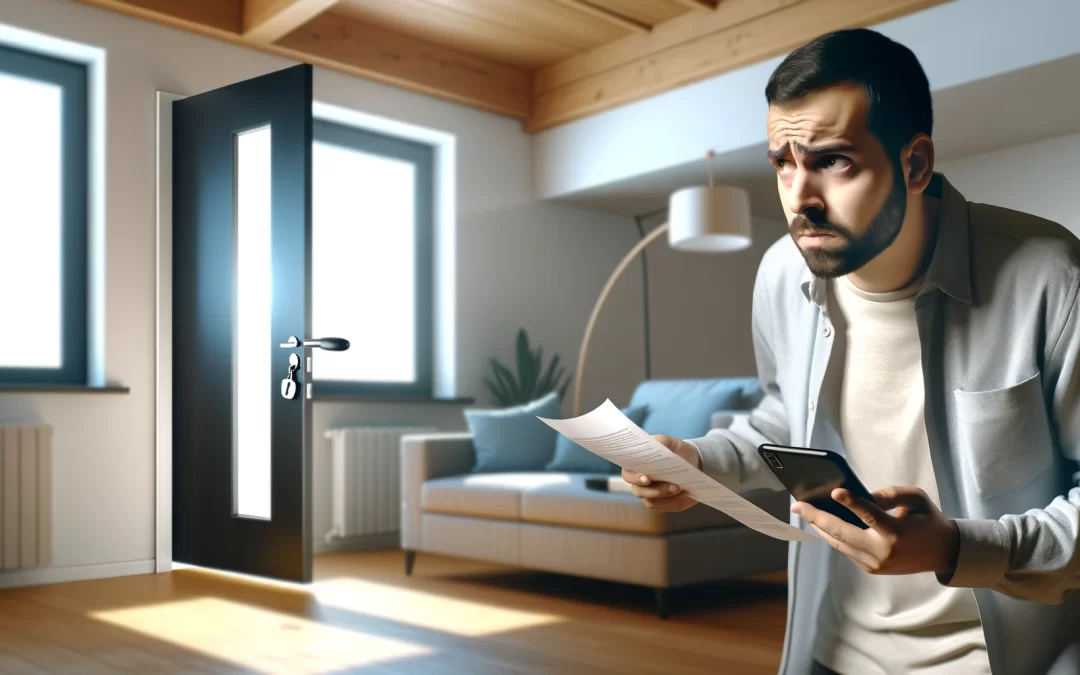As a tenant, you have the right to privacy and peaceful enjoyment of your rental property. However, there are instances where landlords or property managers may invade your privacy, causing discomfort and distress.
When facing an invasion of privacy in your rental home, it’s essential to understand your legal recourses and take appropriate action to protect your rights and maintain habitability.
Upholding Habitability and Privacy Rights
Habitability encompasses not only the physical condition of a rental property but also the tenant’s right to privacy and quiet enjoyment. Landlords have a duty to respect their tenants’ privacy and refrain from intrusive behavior that violates their privacy rights.
This includes entering the rental unit without proper notice, conducting unauthorized inspections, or installing surveillance cameras without consent. Tenants have the right to privacy in their homes, and landlords must adhere to legal standards to ensure habitability and respect tenants’ privacy rights.
Legal Protections Against Privacy Violations
Tenants have legal protections against privacy violations under landlord-tenant laws and regulations. Most jurisdictions require landlords to provide notice before entering a tenant’s rental unit for non-emergency reasons, typically 24 to 48 hours in advance.
Landlords must also have a valid reason for entering the rental unit, such as making repairs or conducting inspections. Additionally, landlords are generally prohibited from installing surveillance cameras or monitoring tenants’ activities without their consent. If your landlord violates your privacy rights, you may have grounds for legal action to seek remedies for the invasion of privacy.
Notifying Landlords of Privacy Concerns
If you believe that your privacy rights have been violated by your landlord or property manager, it’s essential to address the issue promptly and directly with them. Start by notifying your landlord in writing of your privacy concerns and requesting that they cease any intrusive behavior immediately.
Be specific about the nature of the privacy violation and provide evidence, such as dates, times, and descriptions of the incidents. By documenting your communication with your landlord, you can create a record of your efforts to address the privacy issue and protect your rights as a tenant.
Seeking Legal Assistance
If your landlord fails to address your privacy concerns or continues to violate your privacy rights, it may be necessary to seek legal assistance from a tenant rights attorney who can also help with handling illegal lockouts. An attorney can assess your situation, review your lease agreement, and advise you on your rights and options for recourse.
They can also communicate with your landlord on your behalf, negotiate settlements, or represent you in court if necessary. With legal assistance, you can assert your privacy rights, hold your landlord accountable for their actions, and seek remedies for any damages or losses suffered as a result of the invasion of privacy.
Documenting Evidence
Documenting evidence is crucial in proving a privacy violation and supporting your legal claim against your landlord. Keep records of any instances where your privacy rights were violated, including dates, times, and descriptions of the incidents. If possible, gather any physical evidence, such as photographs or videos of unauthorized entries or surveillance cameras.
Additionally, keep copies of all communication with your landlord regarding the privacy issue, including written notices, emails, or text messages. Documentation strengthens your case and increases your chances of success in resolving the privacy dispute.
Enforcing Privacy Rights
Tenants have the right to enforce their privacy rights and seek remedies for privacy violations committed by their landlords. This may involve filing a complaint with the relevant housing authority or agency, such as the local housing department or rent control board, alleging privacy violations. These agencies may investigate the complaint and take action against the landlord if they find evidence of privacy violations.
Additionally, tenants may pursue legal action against their landlords in civil court to seek compensation for damages or losses suffered as a result of the invasion of privacy. By enforcing their privacy rights through legal means, tenants can protect their privacy and maintain a sense of security and tranquility in their rental homes.
Protecting Tenant Privacy
Privacy is a fundamental right for tenants, and landlords have a legal obligation to respect and uphold their tenants’ privacy rights. If you believe that your privacy rights have been violated by your landlord, it’s essential to take action to address the issue and protect your rights.
By understanding your legal recourses, documenting evidence, and seeking legal assistance when necessary, you can assert your privacy rights, hold your landlord accountable, and maintain habitability and privacy in your rental home. Remember, you have the right to privacy, and you do not have to tolerate intrusive behavior from your landlord.

